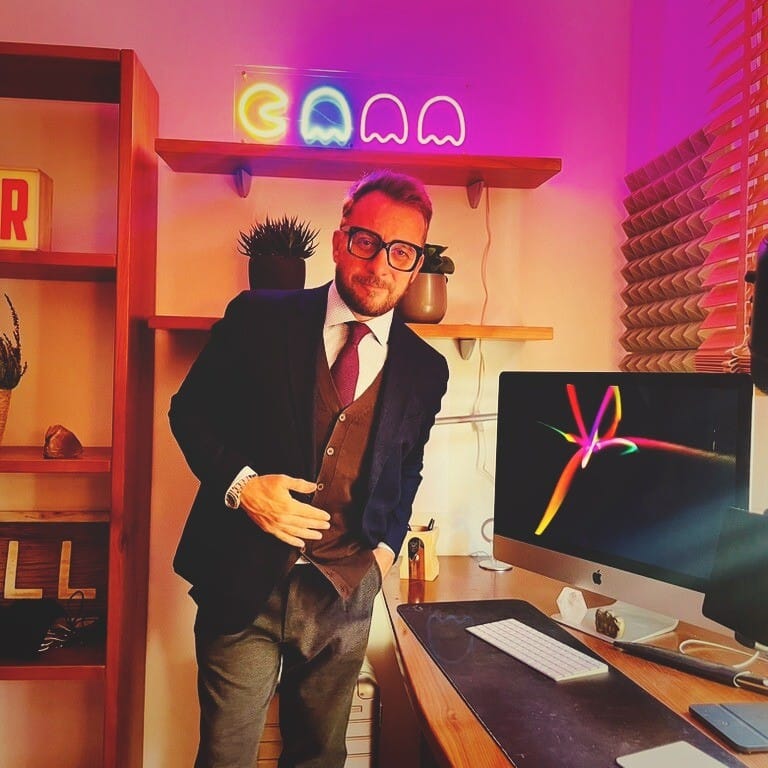The Animal Welfare Investigation Project: Shining a Light on Illegal Dog Fighting and Mafia Puppy Farms.
We interviewed Jacob Lloyd, the Founder of the Animal Welfare Investigations Project and a pioneer in leveraging intelligence gathering techniques and training to prevent animal cruelty on a global scale. His story will shock you.
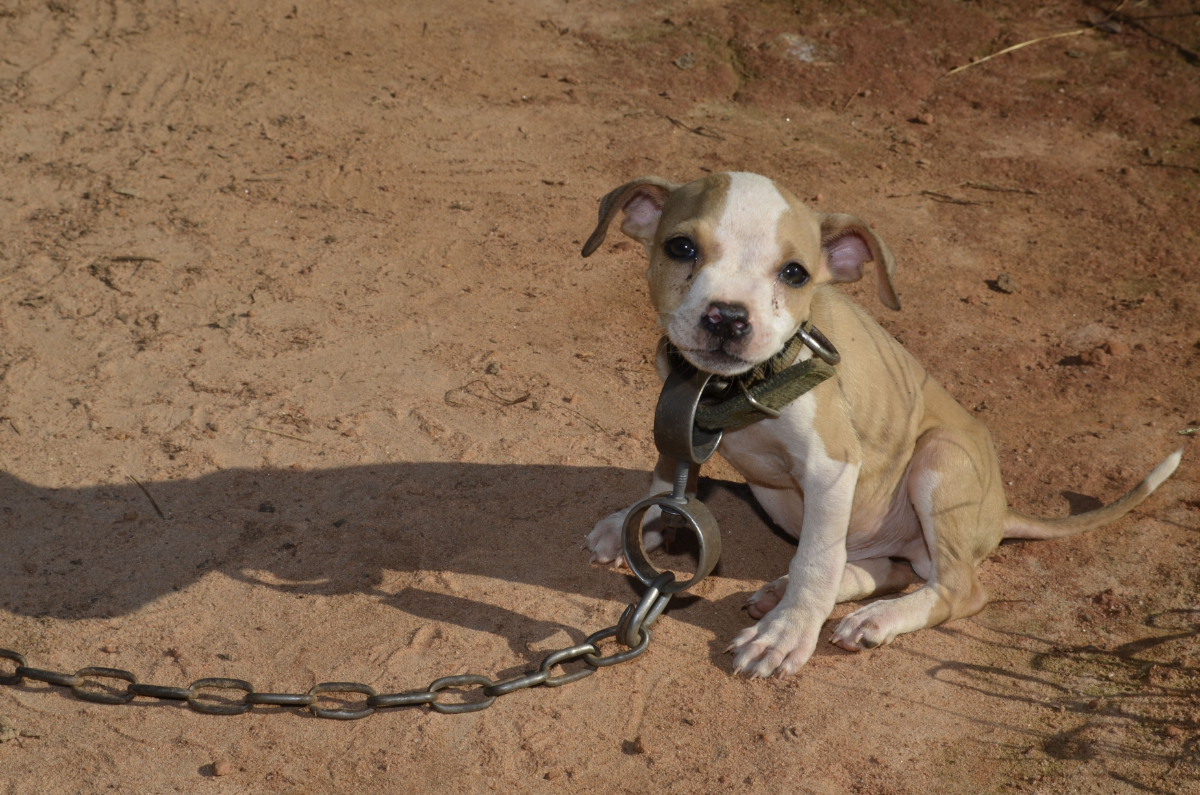
My curiosity leads me into conversations with interesting people, and Jacob Lloyd is easily one of the most interesting people I have ever met. He is the Founder of the Animal Welfare Investigations Project and a pioneer in leveraging intelligence gathering techniques and training to prevent animal cruelty on a global scale.
Jacob told me a story about illegal dog fights run by serious organized crime rings, mafia-owned puppy farms, and police corruption in the illegal dog meat trade. He has withstood death threats, had guns pointed at him, become the victim of disinformation campaigns, and trained the FBI to investigate animal cruelty.
The transcript of our conversation follows. It is a long read, but it is a good read, and it is important that you hear Jacob's story and learn about his good works.
Bule: Thank you for joining me. I have been looking forward to speaking to you.
Jacob: My pleasure. I appreciate you taking the time to interview me.
Bule: Tell me about yourself Jacob, who were you when you were young?
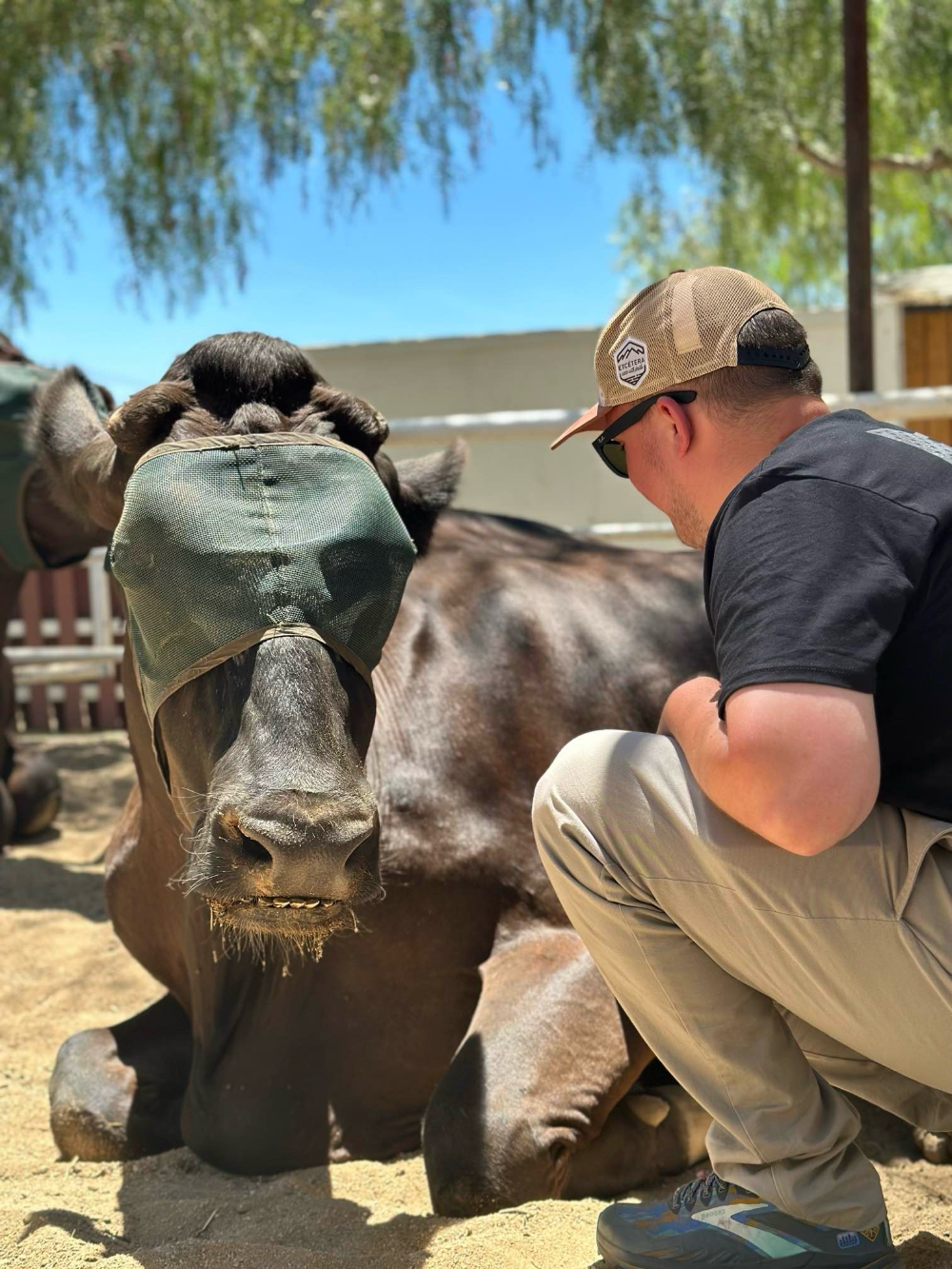
Jacob: I was a junior animal activist. My parents and grandparents were involved in the animal rights movement, so that's been a common theme throughout my life. When I was a young child, we would care for wildlife. You know, we were out feeding foxes, hedgehogs, you name it. I'm from an animal-mad family.
As I was leaving school and considering my career options, I ended up helping out with some investigation work for an independent government body.
Bule: That's where you learned the intelligence game?
Jacob: Yes, that's where I first learned my skills. I was surrounded by seasoned veterans. Many of those guys were retired from the police force, and I was only 18.
I helped them with their work for a while, and then this job came up doing field operations. And I thought, oh, that sounds exciting, but I was surrounded by all these old guys, and we would sit in a van for six hours a day. They would teach me things, I would ask them loads of questions, and I learned a lot.
Bule: But this had nothing to do with animals though right?
Jacob: No, it was unrelated, but it was where I first had the idea to use the intelligence and surveillance techniques I had learned to protect animals.
And that's where it started.
Bule: Have you seen anyone else doing anything similar, Jacob, at the time?
Jacob: No.
Bule: You're a pioneer then.
Jacob: Well, I wouldn't say that, but.
Bule: I would and just did.
Jacob: Well, thank you. I had assumed at the time that people like the RSPCA might do that sort of work, but as it turns out, they didn’t. Nobody was leveraging intelligence gathering techniques in animal cruelty investigations like I was.
People would ask me, “Why would you do that?”
Bule: Why would they ask you that, someone has to investigate these things right?
Jacob: I know. I cannot understand why more organizations don't do it. When I talk to different agencies and groups, they're like, oh yeah, we're not investing in that. You know, we don't want to get involved in that. I think it's such a shame.
Bule: Why was that?
Jacob: I think because it's expensive, being out there in the field, we do a lot of surveillance and covert camera work, and it's very expensive.
People don't understand the value of watching these people.
We're spooks who spy on the people that hurt dogs and other animals.
And that's how I see it, you know. We're out there watching the dog fighters, whether online or in the field. Wherever they may be, we're there.
Bule: So, hold on. So you started to approach different organizations and tell them you wanted to go undercover and investigate animal cruelty?
But you were just a group of hobbyists, right, at this point?
Jacob: Yeah. We were a group of hobbyists. For a few years, my friend, two friends, and I would go out into the night to plant tracking devices, hide cameras, and slowly build up our intelligence packages on our subjects of interest.
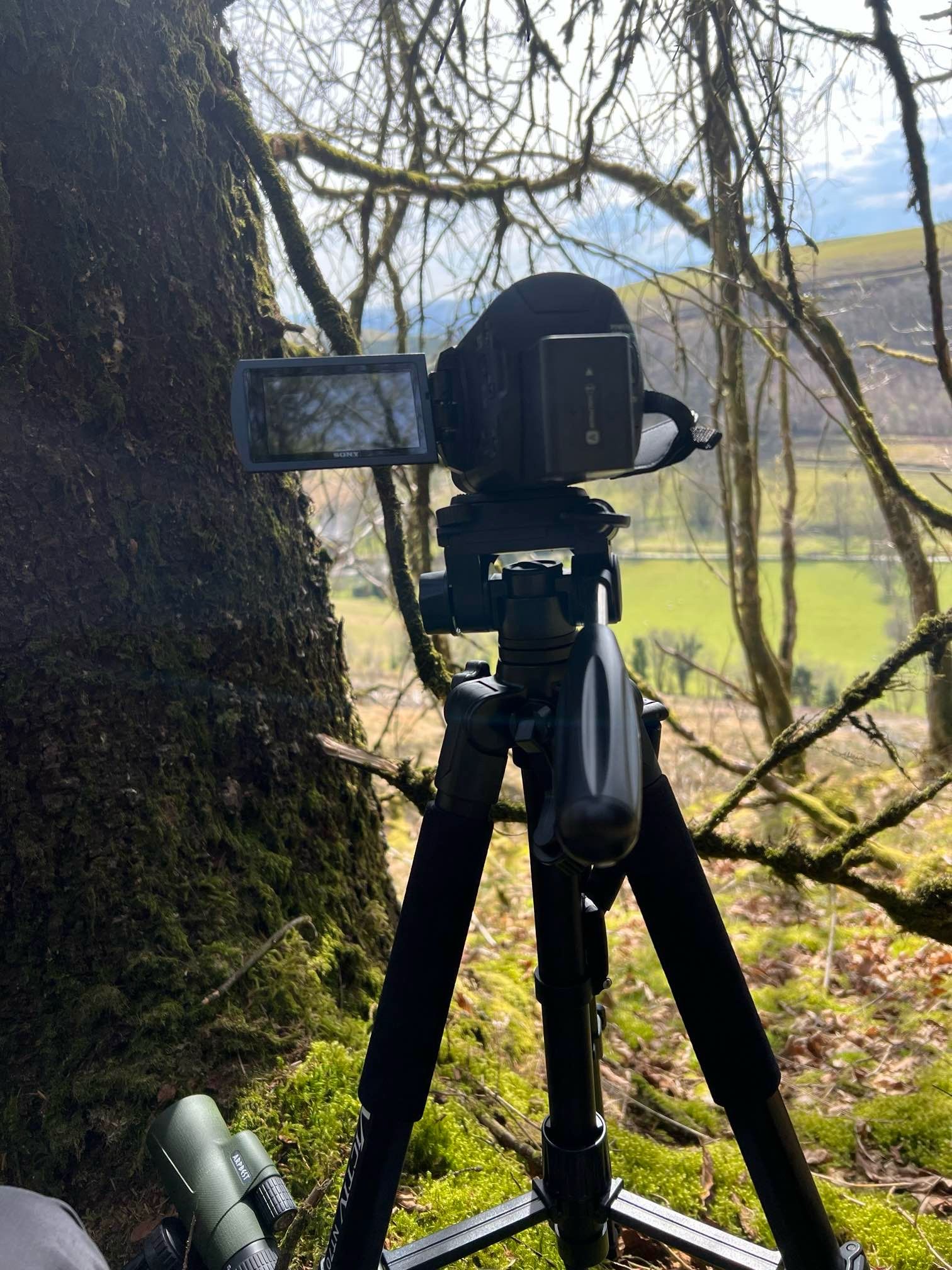
Bule: That's brilliant; I love that you guys are out there doing this work.
Jacob: We would research people we would learn about online, then take our research into the field and work surveillance on them. We would then give that evidence to law enforcement or the RSPCA to act on. But nobody was interested.
Bule: What? You gave them evidence on a plate, and they did nothing?
Jacob: Yeah. We gave them whole evidential packages and intelligence packages. We even said if you want us to go to court, then we are willing to go to court.
Bule: But then you didn't see any follow-up or action from their side?
Jacob: No, nothing.
Bule: Wow. That must have been disheartening. You worked hard to build these intelligence packages and got dirty in the field to gather it, and they ignored it?
Jacob: Yes. This was in the early days though. We still had day jobs.
One of my partners worked in business, and the other was a medical professional; we had full-time jobs back then, but we all had a passion, and we came together.
Bule: I would imagine that it's upsetting when you give the authorities a wrapped-up package of intelligence on a serious crime that you had spent a lot of your free time gathering, and then you discover that they don't do anything with it.
Jacob: Yeah. I'm passionate about this. So, you know,
Bule: Why wouldn't they Jacob? It's their job; they are the police, right?
Jacob: Yeah. It is their job to investigate these crimes.
Bule: What was the disconnect there?
Jacob: Well, I think there are a few things. The first one is they've never heard of these tactics being used before. I think they felt that we were a bit edgy; we were seen as the outsiders, the weirdos, you know? They would say we are the people that creep around in the night. And we were, we did.
I also think that, in particular, the police don't know how to proceed with these cases. That's something that we came to learn; at first, the police didn't know us and didn’t want to say you've done a great job gathering this evidence, but we don't know what the fuck to do next. They don’t know what to do with it.
Bule: What? They kick their doors down and arrest them next, no?
Jacob: That's what comes to your mind, right? But they often don't have a clue. I have gotten to know several police officers, who admitted that they didn't know what they were doing. They had no idea what the legislation around animal cruelty was, and they thought our approach was strange and weird.
Bule: You would think of all the people the police would be used to the idea of covert operations and stakeouts. Why didn't your work resonate with them?
Jacob: I think it was because maybe the mix of animals and covert operations didn't seem to go hand in hand. You know, the first thing they said was, "Nobody is using intelligence gathering techniques like this with animals”.
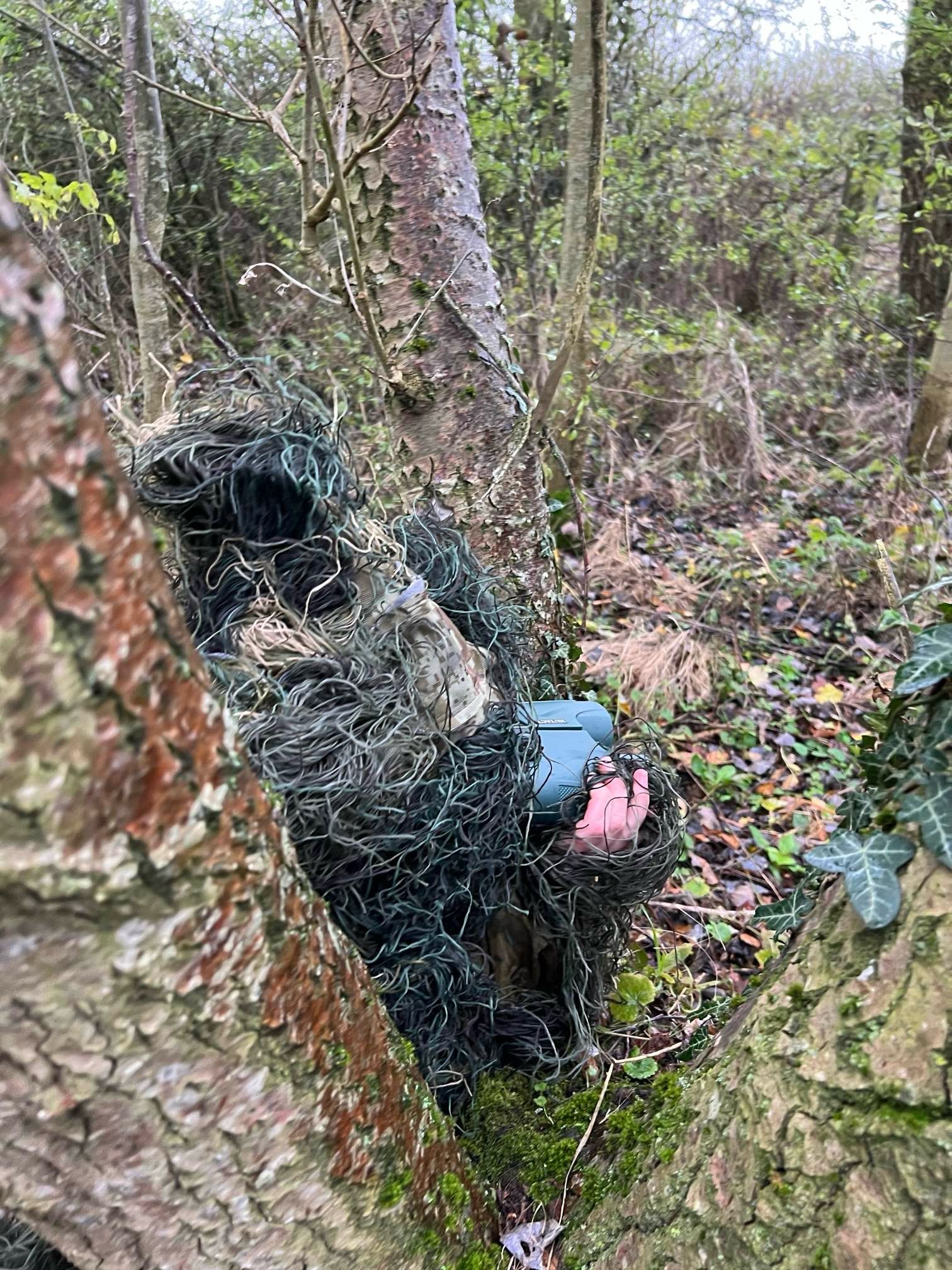
That was when I realized there was a need for an organization that focused predominantly on animal intelligence gathering. So, that's how it started.
Bule: You got together with your hobby group and became professionals.
Jacob: We formed a professional non-profit organization.
Bule: Well done. How long ago was that, Jacob?
Jacob: We unofficially formed about five years ago. Then, two and a half years ago, we officially registered as a non-profit. So, we are relatively new still.
Bule: So you're a professional organization now. Did that help with prosecutions?
Are you taken a little more seriously now?
Jacob: The police are much more receptive to us. We work closely with law enforcement agencies now, both in the UK and in the United States, and have good relationships in the Philippines, where we work on the dog meat trade.
We have some good law enforcement contacts now.
Bule: Wow, your organization operates internationally Jacob!
Jacob: You make it sound like it's something amazing, but I feel like it's my day-to-day stuff. But thank you.
Bule: Your organization's going global, and you are attracting attention.
Jacob: It's definitely happening. You asked about acceptance by law enforcement and prosecutorial authorities, and I think that is starting to happen. For example, I just ran some training sessions for state, federal, and local agencies in the US.
Bule: Fantastic! An Englishman in America teaching them intelligence.
Britannia rules the waves.
Jacob: Yeah, you know, which is great. I also worked alongside a US Special Assistant Attorney. And that worked well; I'm quite proud of that work.
Bule: That sounds like an incredible experience, Jacob.
Jacob: It feels good to have agencies like the FBI and USDA be interested in my work and ask if I can come over and help train their people. It was nice to hear people say, that this is what we need rather than this isn't going to work.
Bule: That must have felt good.
Jacob: It did.
Bule: It was the Americans who got your vibe rather than the Brits then?
Jacob: I find with Americans, they're up for it. For example, I was at the National Animal Cruelty Investigation School in Florida, when a case came up.
Bule: The National Animal Cruelty Investigation School, what is that?
Jacob: They run through the University of Missouri and host training and examination sessions throughout the United States. They have these different levels and teach you how to investigate animal cruelty as you go through them.
Many police agencies take it, as do rescue groups and organizations like that.
I'm the only British person who holds this qualification.
Bule: Yet more evidence of you being a pioneer in your field Jacob.
Why do you think you do so well in the US compared to the UK?
Jacob: In the UK they don't see us as their job. I've had the police say to me, "Is this even a crime?" This is in the UK, where the RSPCA has been in existence for 200 years, and yet the police still don't have a clue that this might be a crime.
I was talking recently with an intelligence officer from a police force in the UK, and we were talking about dog fighting. He said to me, "So you give me this intelligence about dog fighting," he said, "but where do I go from there?"
And I was just like, "What?"
He said, "I don't know where to place this."
Bule: Didn’t you tell him to go out and arrest everybody?
Jacob: He kept saying, "I don't know where to place it. I don't know what to do with it. He was like, "Do you want it?" And I said, "Well, we can work on it more, but we're just going to come straight back to you and ask you to make the arrest".
But in the UK, of course, we've got the right to private prosecution. So that's how we do it; we have prosecuted people before using private prosecutions.
Bule: What does that look like?
Jacob: So we can lay criminal charges the same way as the state. And it's the same process as the Crown Prosecution Service or the state prosecutor would go through. We have our evidential package, go to court, and apply for a summons.
That summons is then either authorized by a judge or issued by the court for our target to come to court. If authorized, they would set a court date and issue a summons, a legal order, for our suspect to appear in court on that date.
Bule: Why do you need the police then?
Jacob: To kick their door down and drag them to court. Half the time, though, you don't need them to. I recently worked with a police intelligence officer who asked me what he should do with this case I had just brought him.
And I suggested treating it like a drug investigation. Because drugs and dog fighting are always linked. So treat it like a drug investigation, and you will come out on top. And he was like, so you're talking about surveillance, gathering communications data, all those things. I said exactly.
He kept asking, for dog fighting? You know, as if he couldn't quite believe what I was saying that dog fighting should be treated as a subject of interest.
Bule: Dog fighting has to be one of the most disgusting spectacles on earth.
Jacob: Yeah. It's disgusting, right? People cannot see that this is a fucking horrific in and of itself, but also, people don’t realize that it's linked to serious organized crime.
Bule: So these people are serious criminals in general.
Jacob: Dog fighting is strongly linked to organized crime. For example, in the last few months, we have looked at roughly 100 dog fighters in the US, but there are estimated to be 40,000 plus dog fight organizers nationwide.
Bule: What sort of people are these?
Jacob: In the last few months, we've identified 100 suspects involved in dog fighting, and every single one of them, when we've done criminal background checks on them, has a connection to either drugs or human trafficking.
Bule: People of interest.
Jacob: Yeah. In the US, if you look at nearly every dog fighting prosecution, nearly all do not originate from a dog fighting investigation. The original charges are almost always for drug dealing or human trafficking.
Bule: But then they tack on the animal cruelty and dog fighting charges because they have the evidence to support it that they gathered investigating other things?
Jacob: Yeah. Exactly. I want to change that. I want to make it so that dog fighting is treated in the same way as drug dealing or human trafficking because it has real victims. The dogs being torn up by this vicious sport are real victims.
Why should these prosecutions not begin with an investigation into dog fighting rather than as a by-product of extra charges used to lock somebody up for longer?
Bule: You're right.
Jacob: Recently, there were a couple of cases in the US, you know, puppies as young as 10 weeks old being decapitated. This guy was texting his friends, saying that he felt these puppies were useless and would never grow up to be fighters.
These puppies had been violently baited, and they didn't defend themselves.
So he just decapitated them.
Bule: That makes me sick to my stomach.
Jacob: It will do that.
Bule: So you're a nonprofit now. Hopefully, you've been funded. Are you getting much support financially from different organizations and people?
Jacob: Currently, we're 100% funded by individuals. So we don't receive any funding from businesses or anything like that. We're trying to improve that; it's tough. You know, just people chipping in 10, 20 pounds a month, and yeah, that's basically how we survive and operate.
Bule: I think it's wonderful that people are willing to support this work.
What's your team like now? Have you grown as a team?
Jacob: We still have a core team of three, but we use our international network of volunteers, contractors, and associates to grow our reach.
We maintain a central database on dog fighting but also cover a wide range of organized animal crimes. In the last few months, we've processed probably over a thousand intelligence reports, so we're beginning to have a real impact.
Bule: That's incredible, Jacob. You mentioned organized animal crimes outside of dog fighting. What other kinds of organized animal crimes are there?
Jacob: Puppy farming and puppy mills are a good example of a lucrative international trade that almost always has a connection to drugs. In particular, in South America and Europe, there are strong links between puppy farming and the mafia. We've identified mafia groups who specialize in puppy import/export.
Bule: Straight-up mafiosa?
Jacob: Oh yeah, I'm talking about the Italian mafia.
Bule: That's a bit hairy. Spying on the mafia Jacob?
Jacob: You know, there is big money in the puppy farming industry; it's worth billions of pounds, billions of euros, and billions of dollars. Why wouldn't they engage in something low-risk with a high reward?
Bule: Low risk?
Jacob: Low risk because nobody gives a shit. Nobody else cares; nobody else is looking. In Italy, do you think the police spend time on these people?
Bule: I guess not.
Jacob: Not as a whole. Nobody's gonna put the time to put cross-border investigations in place. Europol probably would not even recognize it as a crime, not if they're like most other European police agencies I deal with.
And so, you know, high reward, low risk.
Bule: How does this work affect your personal life? You know, you're identifying these people, shining a light on some vicious and ruthless individuals.
Have there been any repercussions Jacob?
Jacob: Yes, so I have been subject to disinformation campaigns; people on the internet allegedly know more about me than I know about myself. I have had physical threats, a gun pointed at me, and I have been assaulted in the field.
But I refuse to be intimidated.
My house is alarmed, and I've got detection sensors on everything. I also check under my car daily for a tracker; it impacts you mentally, and that can take a toll.
Bule: It can.
Jacob: You understand, right?
Bule: Yes.
Jacob: And I've had death threats; I've had a needle sent to me in a post once, you know, with a note that said it was HIV infected and things like that.
Bule: Unpleasant.
Jacob: We have a sense of humor about it, to be honest, to deal with it. But we support each other, do a lot of fun things together, and feel like a family.
We refuse to be intimidated even though we have had guns pointed at us.
Bule: Guns?
Jacob: Last year in the Philippines, working on a dogfight investigation, one of our people was violently threatened with a gun, intimidation, it happens.
We've had people be killed before, an inspector who was infiltrating a cock fighting ring. He was killed. We've had animal control officers working on low-level stuff in the United States that have been killed. This can be dangerous work.
I joke about it, but it's not for the faint-hearted.
Bule: Does that make it difficult to recruit?
Jacob: Yes. Hopefully, we'll grow and expand, and we can have more people in the field to target and pursue more of these dog fighters and animal abusers.
Bule: That sounds like a worthy cause to me.
Jacob: I see these abusers as my enemies, and I'm happy for them not to like me.
If they want to take me out, then I know I'm doing a good job.
Bule: Well, those aren't the sort of career KPIs I look for.
Jacob: That's the way I see it. I see them as the enemy. If I want to win a battle against my enemy, I need to know everything about him, so that's what I do.
Bule: I love your purpose. Is it safe to say you maintain a list of enemies?
Jacob: List?
It is more like a vast, growing database full of enemies.
Bule: I love it; guys like you are their worst nightmare.
Jacob: People don't understand. When we talk about puppy farming, people see cute puppies, right? But I see a criminal underworld. We talk about dog fighting, and people think it's delinquents being cruel to dangerous dogs.
Most of the time its a criminal gang that traffics children, women, drugs, and dogs.
People don't understand the true criminal depth of these groups and individuals.
Bule: This is an important interview then.
Jacob: Yes, it needs to be understood that this is serious organized crime.
There's even police corruption involved in some of these cases I look at.
Bule: Where did you see police corruption?
Jacob: In the Philippines. I go there a few times a year to work on illegal dog meat trade investigations. The Chinese mafia have their hands in the trade.
Bule: How did you get to work in the Philippines?
Jacob: In the animal world, it's quite a small world, to be honest, and everybody talks. So people were telling me, "You know, there's this illegal dog meat trade in the Philippines," and I thought it best to investigate this wrongdoing.
Bule: I know the Chinese love to eat dogs, but I didn’t know the Filipinos did.
Jacob: It's been banned for a long time in the Philippines, which means we could work on it from a criminal level. The trade is driven by Chinese Filipinos.
People kept saying, "Nobody's doing anything about it."
Bule: Nobody?
Jacob: One organization, the Animal Kingdom Foundation, was doing some work on it, but it was struggling to make an impact. It had no formal surveillance training, intelligence training, or anything like that. I contacted it and asked if we could come out and learn about what it was doing and try to help them.
We rescued over 30 dogs in six months and arrested 12 dog meat traders.
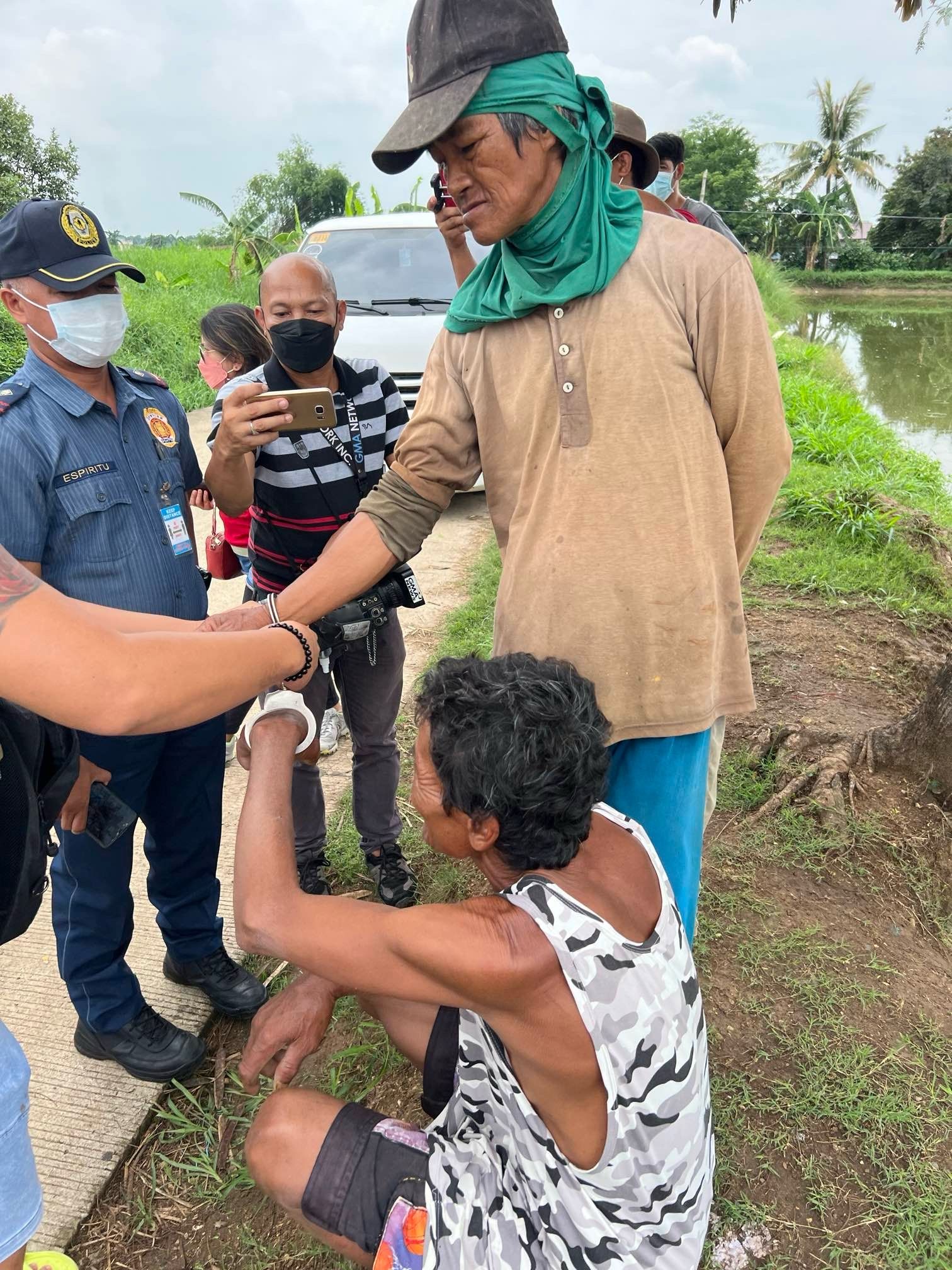
Bule: What a fantastic result Jacob! I love how you fly around the world solving these crimes when nobody else cares about them. They should give you a medal.
You have a program for volunteers to join and work with you, right?
Jacob: We're just launching one. I am seeking volunteers who want to build their open source intelligence skills. I'm keeping people updated on LinkedIn at the moment, and I am starting to build a list of potential participants.
I was worried that people would not be interested in doing this work, but the strong feedback I got from the community was insane. People said they didn't know anything like our group existed and asked how they could get involved.
Bule: So, kind of like the Tracelabs model, right?
Jacob: Exactly, yeah, exactly like that. But we're hoping to give volunteers some accredited training on the OSINT side with the volunteer program.
We're currently preparing our packages to be CPD certified.
Bule: What does that mean?
Jacob: We're hoping to get the courses accredited by an external body to give the volunteers something back, such as real training and professional accreditations.
We need their help to gather intelligence for our database. That intelligence will inform on-the-ground action and help us choose the real-life targets we will work on. That's what we're trying to build: a distributed mission control of volunteers.
Bule: Good luck with that. It's a great mission.
I think you are doing incredible work, and it's really important work. I want to thank you and your whole team for volunteering your time to do it.
Thank you for coming on to tell me your story Jacob.
Jacob: Thank you for listening!
This brings us to the end of our conversation with Jacob, and I think this has to be one of the most interesting conversation I have had so far in that its the first where the mafia and police corruption reared their ugly heads. The work Jacob does isn't just vital, its fascinating, and its having a huge impact on organized animal crime.
Jacobs model represents the future of animal welfare investigations, and that, even though he might not say so himself, is why he is a true pioneer in his field.
Authors Note: This concludes our interview with Jacob. If you like his work and want to support him, please follow him on X or LinkedIn and make a small donation to his group so that they can continue their good work.


